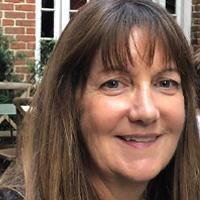SACRAMENTO (June 8, 2022)—The California Air Resources Board will hold a hearing in Sacramento on Thursday, June 9 to hear public comments about proposed standards to guide the state’s transition to making all new cars zero-emission vehicles by 2035.
As drafted, the Advanced Clean Cars II rule would require that 35 percent of model year 2026 cars for sale in California be zero-emission vehicles, ramping up to 100 percent by 2035—a goal set by Gov. Gavin Newsom. This new generation of zero-emission vehicle regulations is expected to be adopted by the board in August in what will likely be California’s biggest climate action of the year.
David Reichmuth, senior engineer in the Clean Transportation Program at the Union of Concerned Scientists (UCS), will speak at the hearing.
“A strong zero-emission vehicle standard is the bedrock policy for addressing climate pollution from California’s transportation system. We must move faster to eliminate pollution from the tailpipes of cars that is fouling California’s air and contributing to the climate impacts of extreme heat, drought and destructive wildfires,” said Reichmuth. “The proposed rule must go further, avoid loopholes, and be strong enough to accelerate deployment of electric vehicles in communities most impacted by air pollution by ensuring that affordable new and used zero-emission vehicles are available to all Californians.”
Passenger vehicles are the state's single largest source of global warming emissions. If adopted by the Air Resources Board, the new Advanced Clean Cars regulations would ensure a transition to 100 percent zero-emission vehicles for both California and other states that adopt the standard.
In comments submitted to the board, many automakers are calling for flexibilities and credits that will slow California’s progress to reduce emissions. UCS is calling for the board to reject these proposed loopholes and instead strengthen the proposal to achieve 75 percent ZEV sales by 2030.
